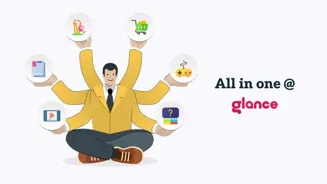Unlock the Secrets of Effective Networking: Dive into the Science Behind Building Meaningful Connections. Curious? Read on for a game-changing insight!
Networking, boss? It's not just about exchanging visiting
cards like some filmy villain! It's a proper science, you see. Gone are those days when chancing upon a random meetup could translate to a career-defining opportunity.
While those golden shots still happen, relying solely upon luck is a risky game in today's competitive world. To truly leverage the power of networking, it's time to get familiar with the data driving the most successful networking methods.
It’s about human psychology, social connections, and even a bit of brain magic! Forget awkward small talk and forced smiles, we're diving deep into the surprising science behind building connections that actually matter. Prepare to have your networking game completely transformed, sorted?
Value weak ties for new opportunities in networking
The first scientific principle driving networking is the understanding of "weak ties". Now, your strong connections like close friends and immediate family obviously matter.
But, sociologists have found that it's actually your weak ties – those acquaintances, friends of friends, or even people you vaguely know from a once-attended seminar - who often provide access to new information and opportunities.
Think about it: your closest circle likely shares similar knowledge and perspectives. Weak ties, on the other hand, connect you to different social circles, each with their own unique set of information and resources. This is where the real gold lies.
So, don't just focus on deepening existing relationships. Actively cultivate and maintain those peripheral connections also, okay? After all, that distant cousin you met at your auntie's wedding might just be the link to your next big break.
These 'weak ties' can really open doors that your friends and siblings are not in a position to offer. Building this network is a deliberate strategy which offers access to multiple career and personal enrichment opportunities.
Don't underestimate the power of casual connections, they can be seriously beneficial.
Be a giver in networking to build strong relationships
Another key aspect is understanding the psychology of reciprocity. Basically, people are more likely to help those who have helped them in the past. So, if you want to build a strong network, focus on being a giver, not just a taker.
Offer your help, expertise, or resources to your contacts without expecting anything in return immediately. This creates a sense of obligation and makes them more likely to reciprocate when you need assistance.
Remember, networking is not just about what you can get, but also about what you can give. Think of it as building a "karma bank" of goodwill. A little generosity can go a long way in establishing meaningful and long-lasting relationships.
So, pitch in when you can, give without expecting something immediately in return, and watch as your network flourishes with genuine connections. It's all about creating a mutually supportive environment. Be a generous participant to yield greater benefits.
Showcase expertise subtly to build credibility and attract connections
Then there’s the matter of "social proof". People are naturally drawn to those who are well-liked and respected by others. In networking, this means showcasing your expertise and accomplishments in a subtle and authentic way.
Don't go around bragging about yourself, but do share your successes and contributions in a genuine manner. Highlight your involvement in successful projects, share valuable insights, or showcase positive feedback you've received.
This builds credibility and makes people more likely to want to connect with you. Social proof also extends to your online presence. Make sure your LinkedIn profile is up-to-date and reflects your skills and experience. Engage in relevant online communities and share your thoughts and opinions.
By showcasing your expertise and building a strong online presence, you will attract the right connections and opportunities. Remember, people are more inclined to trust and connect with those who are perceived as competent and reputable.
In-person interactions foster trust and strong relationships
But don't just connect online. Science also proves the strength of face-to-face interactions. While online networking is convenient, nothing beats the power of a genuine face-to-face conversation. Studies show that in-person interactions build stronger relationships and foster deeper trust.
Make an effort to attend industry events, conferences, and workshops where you can meet people in person. Engage in meaningful conversations, listen attentively, and show genuine interest in others.
Eye contact, body language, and tone of voice all play a crucial role in building rapport and establishing a connection. If possible, follow up with a personal note or email after meeting someone in person. This shows that you value the connection and are interested in building a relationship.
Don't underestimate the power of a handshake and a genuine smile to leave a lasting impression. In todays digital age, taking the effort to find an in-person meeting can give a deeper bond.
Nurture relationships consistently for networking success
Finally, remember that effective networking is not a one-time event, but rather an ongoing process. It's about continuously nurturing your relationships and staying in touch with your contacts.
Set aside time each week to reach out to your network, whether it's through a quick email, a phone call, or a social media message. Share relevant articles, offer your assistance, or simply check in to see how they're doing.
The key is to stay top of mind and maintain a consistent presence in their lives. Remember, relationships require effort and attention. The more you invest in your network, the more it will pay off in the long run.
Keep in mind the importance of fostering the relationships or they can easily be lost. These relationships need constant checking in to make sure that your network stays active. It is not about quantity, it is about building quality relationships in the network.
AI Generated Content. Glance/InMobi shall have no liability for the content















